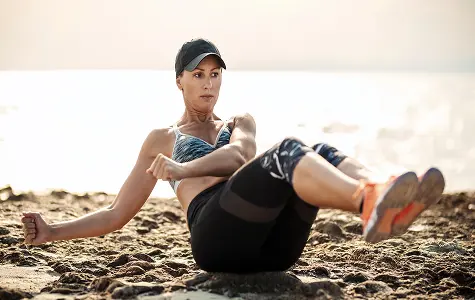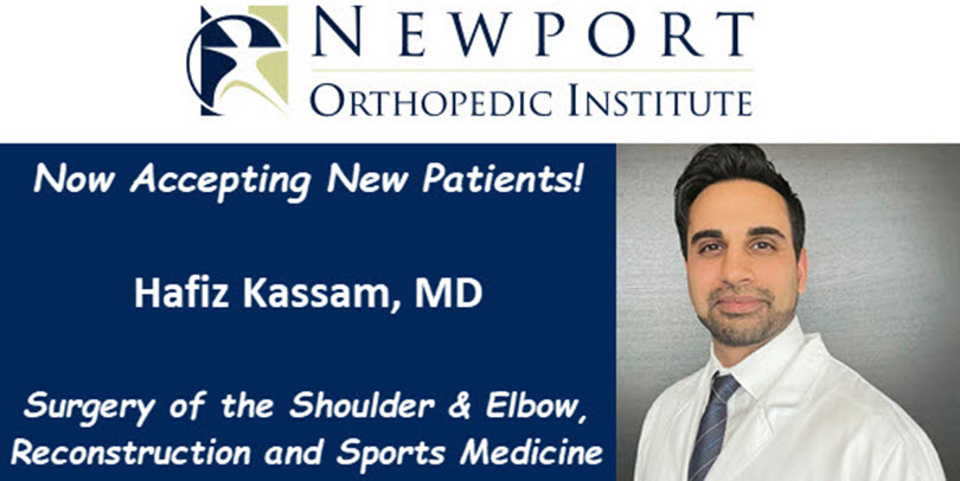
Rotator Cuff Repair
Relieving Pain & Restoring Motion
The Anatomy of a Rotator Cuff
The rotator cuff is a group of 4 muscles that come together as tendons, attaching to the top of the upper shoulder bone (humerus). The rotator cuff’s main function is to center the ball and socket shoulder joint and lift the arm. When one of these tendons becomes injured, it will alter the mechanics of the shoulder. Injuries can be a complete tear or may start as a small fray or tear can progress to a complete rupture over time. Repetitive overhead motion is often linked to a degenerative rotator cuff tear.
Your shoulder surgeon will develop a personalized treatment plan for a rotator cuff injury typically starting with nonsurgical options, including activity modification, physical therapy, cortisone injections and anti-inflammatory medication like ibuprofen and naproxen. Surgery may be recommended if nonsurgical treatment fails to provide adequate relief & function, if your tears complete and occurred from an acute injury. Athletes and young active individuals may want to pursue surgical treatment if they need maximum arm strength for their sports, or to do physical jobs that require frequent overhead work.
Do I Have a Rotator Cuff Injury?
If you’re experiencing shoulder pain, it could be from a rotator cuff tear, an unfortunately common injury affecting almost 2 million Americans every year1. Rotator cuff injuries can be very painful and cause shoulder movement to become more difficult, even for small movements like putting on a button-down shirt or reaching for an object on a shelf. Symptoms may develop gradually over time, especially if you engage in a sport or your job involves repetitive overhead motions. A rotator cuff tear may also result from a trauma or sports injury.
You may have a rotator cuff tear if you notice your arm has:
- Pain while at rest, especially if you lie on the affected shoulder
- Discomfort when raising or lowering the affected arm, or with certain movements
- Weakness or pain while rotating or lifting your arm
- Crackling or crunching sensations or sounds when moving the affected arm
Rotator Cuff Repair at Newport Orthopedic Institute
Your outpatient rotator cuff repair surgery will be performed by a board-certified orthopedic surgeon who is highly skilled in shoulder surgery. Every rotator cuff repair surgery is different depending on the size and location of the tear, quantity of healthy tendon tissue remaining and chronicity of the symptoms experience. Most patients are treated with an arthroscopic (minimally invasive) repair, with only a few types requiring a mini-open repair. During arthroscopic rotator cuff repair surgery, several tiny incisions are made and a small fiberoptic scope and surgical instruments are passed through the incision so your shoulder surgeon can visualize the inside of the joint. Mini-open repair uses both arthroscopic and open surgery techniques. Both of these procedures are considered minimally invasive because there is less post-operative pain and quicker healing than traditional open rotator cuff surgery. Traditional open surgery requires the surgeon to detach and then repair the deltoid shoulder muscle whereas arthroscopic and mini-open repairs do not.
Rotator Cuff Repair Recovery
After rotator cuff surgery, the arm is placed in a sling for up to six weeks to temporarily immobilize the shoulder as it heals. As you continue healing, your orthopedic surgeon will prescribe a physical therapy regimen and exercise program for you to help restore the range of motion and strength in the shoulder. Physical therapy begins with passive motions and gradually advances to active, resistance exercises., Most people will not experience instant pain relief from surgery with a full recovery taking several months. Your doctor may advise that you take over-the-counter pain relievers such as acetaminophen, ibuprofen or naproxen to manage your pain without the use of opioid painkillers.
Get relief from shoulder pain by calling (949) 722-7038 to schedule a consult with a Newport Orthopedic Institute shoulder surgeon today!
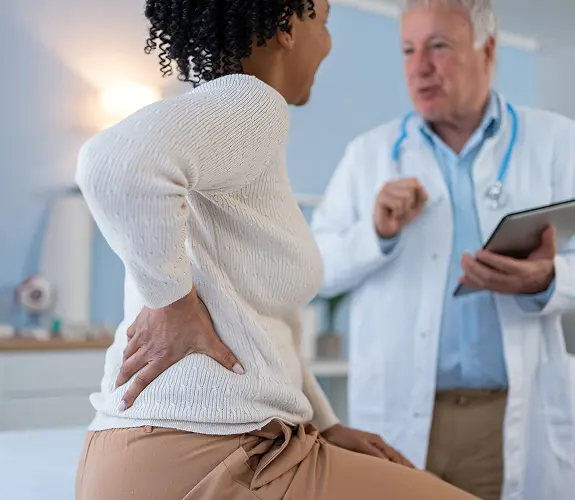
Where we provide Rotator Cuff Repair Services
-
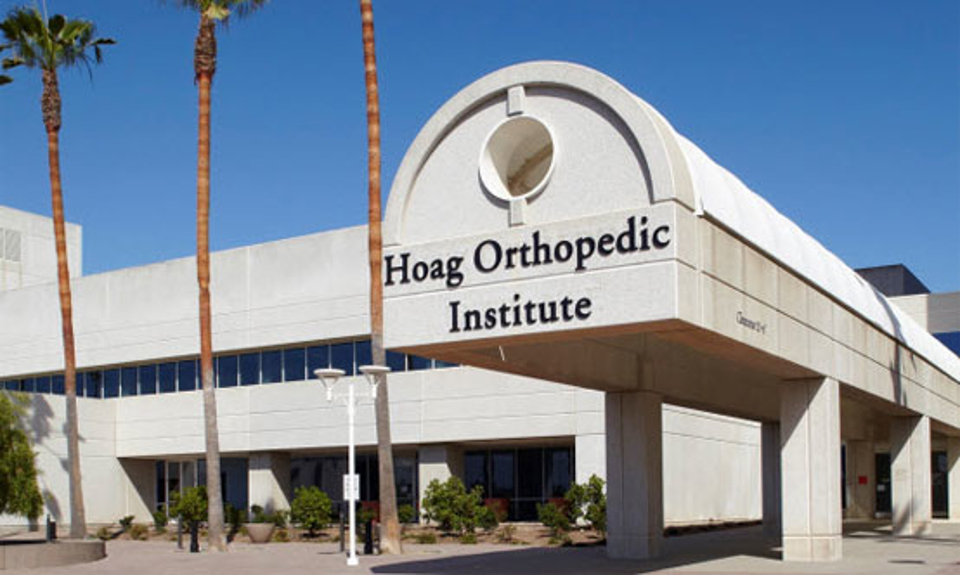 Hoag Orthopedic Institute Hospitals & Surgery Centers 16250 Sand Canyon Ave.
Hoag Orthopedic Institute Hospitals & Surgery Centers 16250 Sand Canyon Ave.
Irvine, CA 92618View Location -
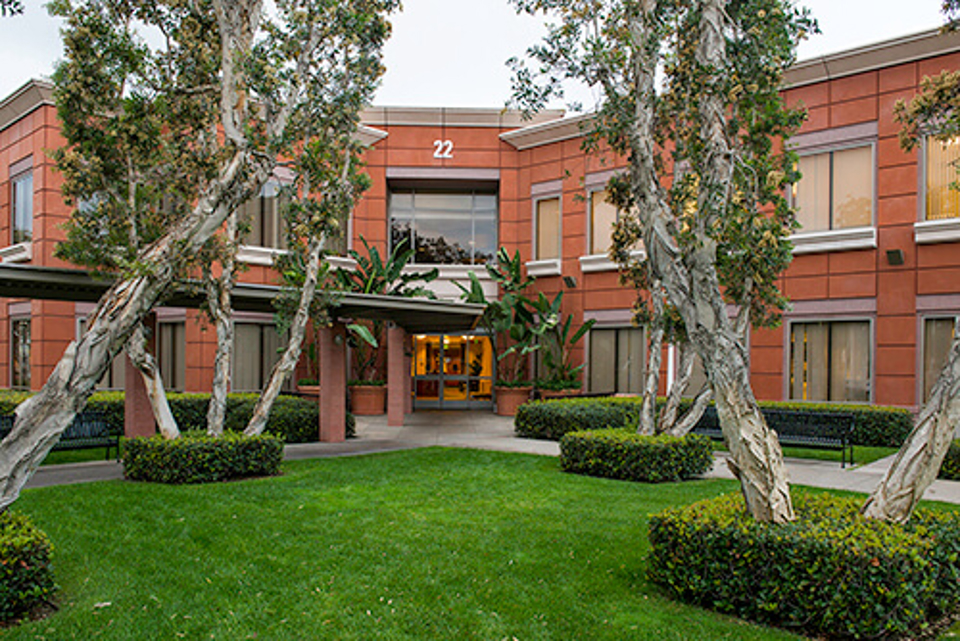 Hoag Orthopedic Institute Surgery Center - Newport Beach Hospitals & Surgery Centers 22 Corporate Plaza, Suite 150
Hoag Orthopedic Institute Surgery Center - Newport Beach Hospitals & Surgery Centers 22 Corporate Plaza, Suite 150
Newport Beach, CA 92660View Location -
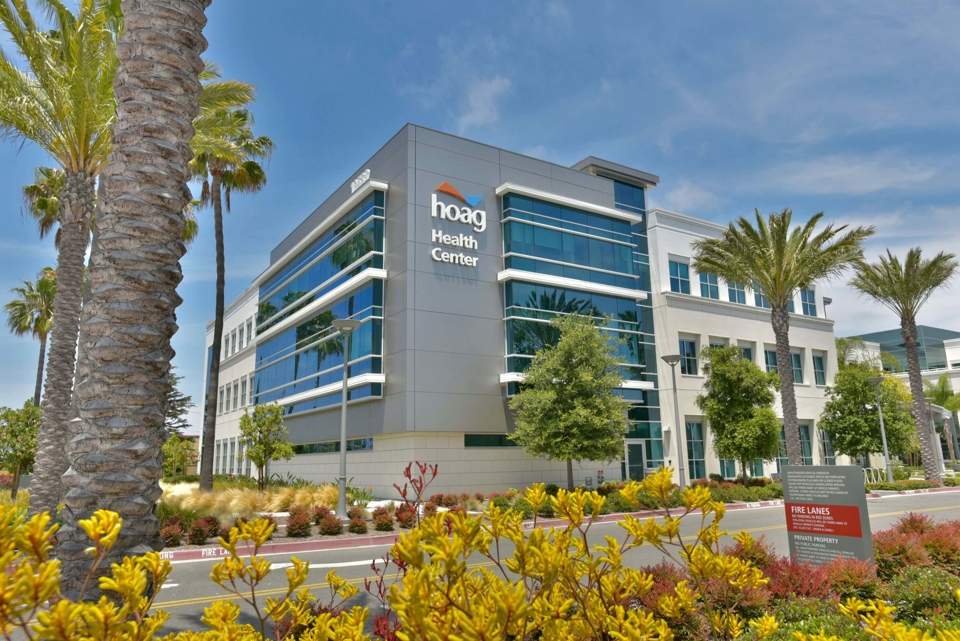 Newport Orthopedic Institute - Huntington Beach Orthopedics Physician Offices 19582 Beach Boulevard, Suite 306
Newport Orthopedic Institute - Huntington Beach Orthopedics Physician Offices 19582 Beach Boulevard, Suite 306
Huntington Beach, CA 92648View Location -
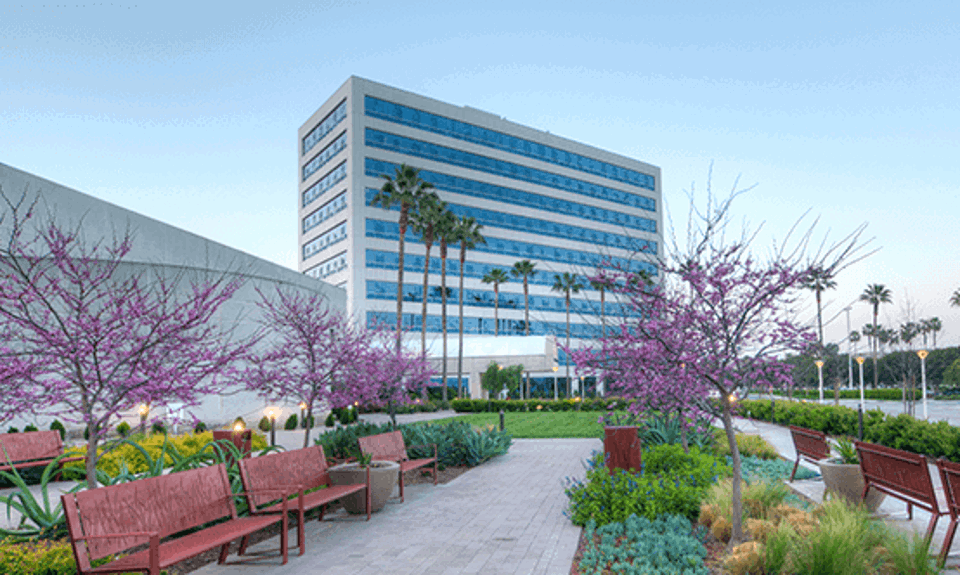 Newport Orthopedic Institute - Irvine Orthopedics Physician Offices 16300 Sand Canyon Ave, Suite 400
Newport Orthopedic Institute - Irvine Orthopedics Physician Offices 16300 Sand Canyon Ave, Suite 400
Irvine, CA 92618View Location -
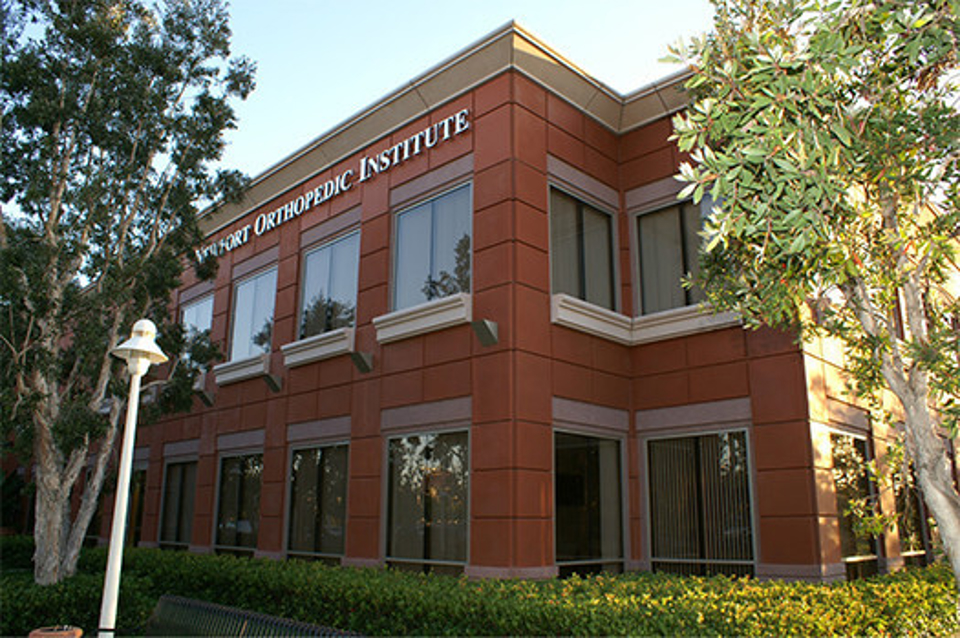 Newport Orthopedic Institute - Newport Beach Orthopedics Physician Offices 22 Corporate Plaza Drive
Newport Orthopedic Institute - Newport Beach Orthopedics Physician Offices 22 Corporate Plaza Drive
Newport Beach, CA 92660View Location
Stories about our Rotator Cuff Repair Services
-
- Shoulder
Shoulder Scope With Reconstruction
Provider: Russell S Petrie MD“Dr. Petrie and his team were all extremely nice and filled me with confidence. They explained everything to me very clearly and did an amazing job with the surgery. I am excited about the results.” -
- Shoulder
Shoulder Scope With Reconstruction
Provider: Russell S Petrie MD“The attention from all team members especially the return phone calls for any inquire's or concerns I may of had.” -
- Shoulder
Shoulder Scope With Reconstruction
Provider: Russell S Petrie MD“The whole staff was excellant and all the follow-up was very good. Responses to question was very timely.” -
- Shoulder
Petrie Shoulder Scope With Reconstruction
Provider: Russell S Petrie MD“Detailed explanation of what was done to repair the injury and available for any follow up questions.” -
- Shoulder
Shoulder replacement
Provider: Russell S Petrie MD“It was my 18th surgery! I did my research and chose Dr. Petrie and his team. So far so good. I would love it if someone would figure out a way to prevent arthritis all together. I think HOI is great. I would refer anyone who asked to Dr.Petrie.” -
- Shoulder
Shoulder Scope With Reconstruction
Provider: Russell S Petrie MD“Thoughtful and thorough. I appreciate being cared for both as a patient and as a person. Thank you for being you!”
Related Videos
-
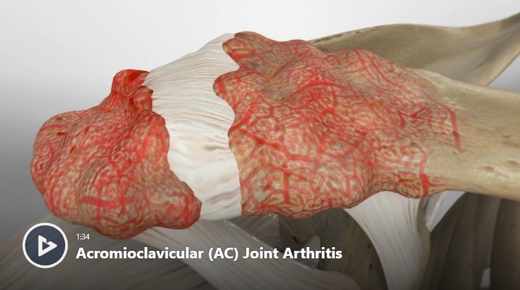 Acromioclavicular (AC) Joint ArthritisWatch Video
Acromioclavicular (AC) Joint ArthritisWatch Video -
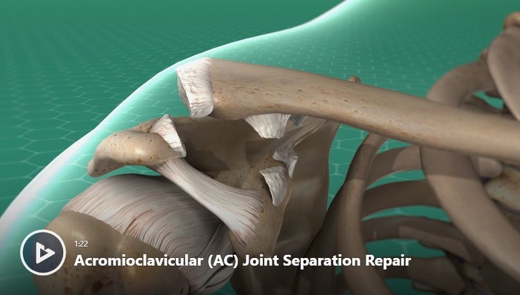 Acromioclavicular (AC) Joint Separation RepairWatch Video
Acromioclavicular (AC) Joint Separation RepairWatch Video -
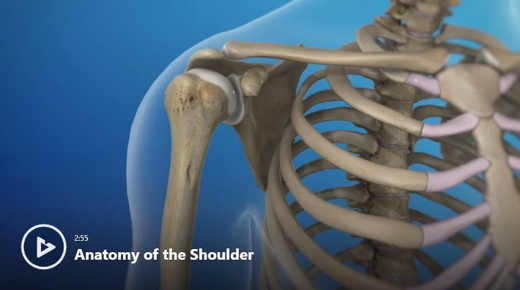 Anatomy of the ShoulderWatch Video
Anatomy of the ShoulderWatch Video -
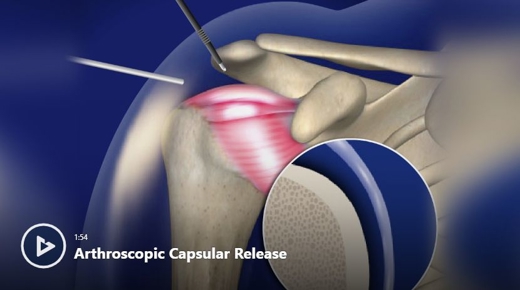 Arthroscopic Capsular ReleaseWatch Video
Arthroscopic Capsular ReleaseWatch Video -
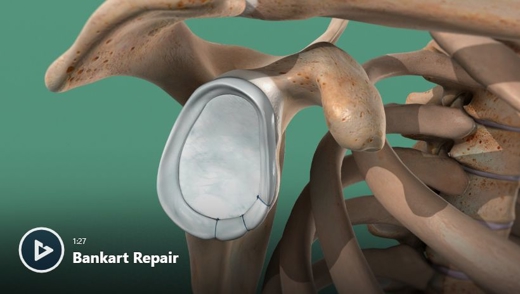 Bankart RepairWatch Video
Bankart RepairWatch Video -
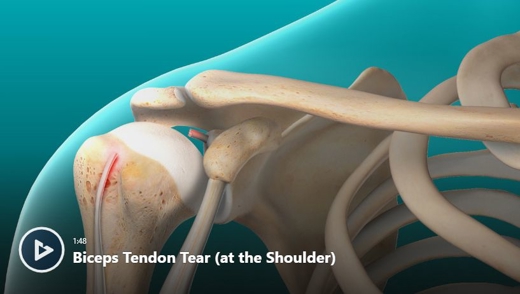 Biceps Tendon Tear (at the Shoulder)Watch Video
Biceps Tendon Tear (at the Shoulder)Watch Video -
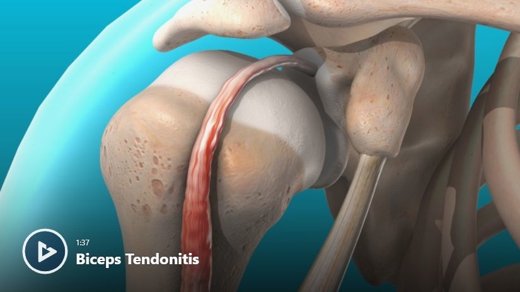 Biceps TendonitisWatch Video
Biceps TendonitisWatch Video -
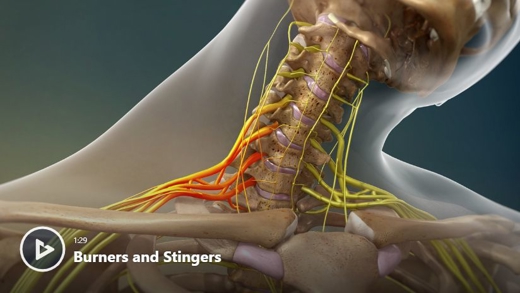 Burners and StingersWatch Video
Burners and StingersWatch Video -
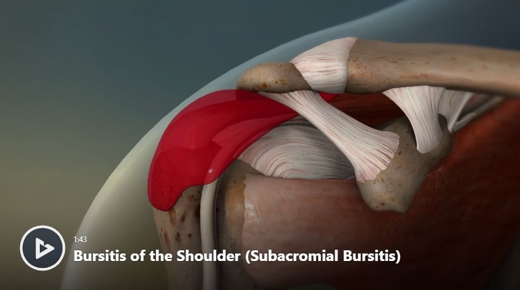 Bursitis of the Shoulder (Subacromial Bursitis)Watch Video
Bursitis of the Shoulder (Subacromial Bursitis)Watch Video -
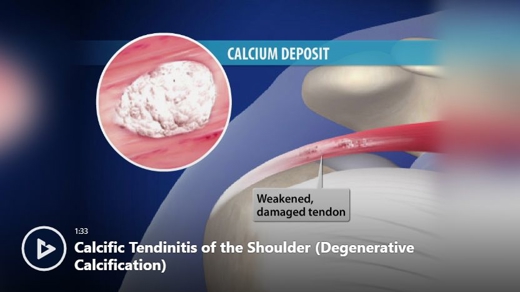 Calcific Tendinitis of the Shoulder (Degenerative Calcification)Watch Video
Calcific Tendinitis of the Shoulder (Degenerative Calcification)Watch Video
